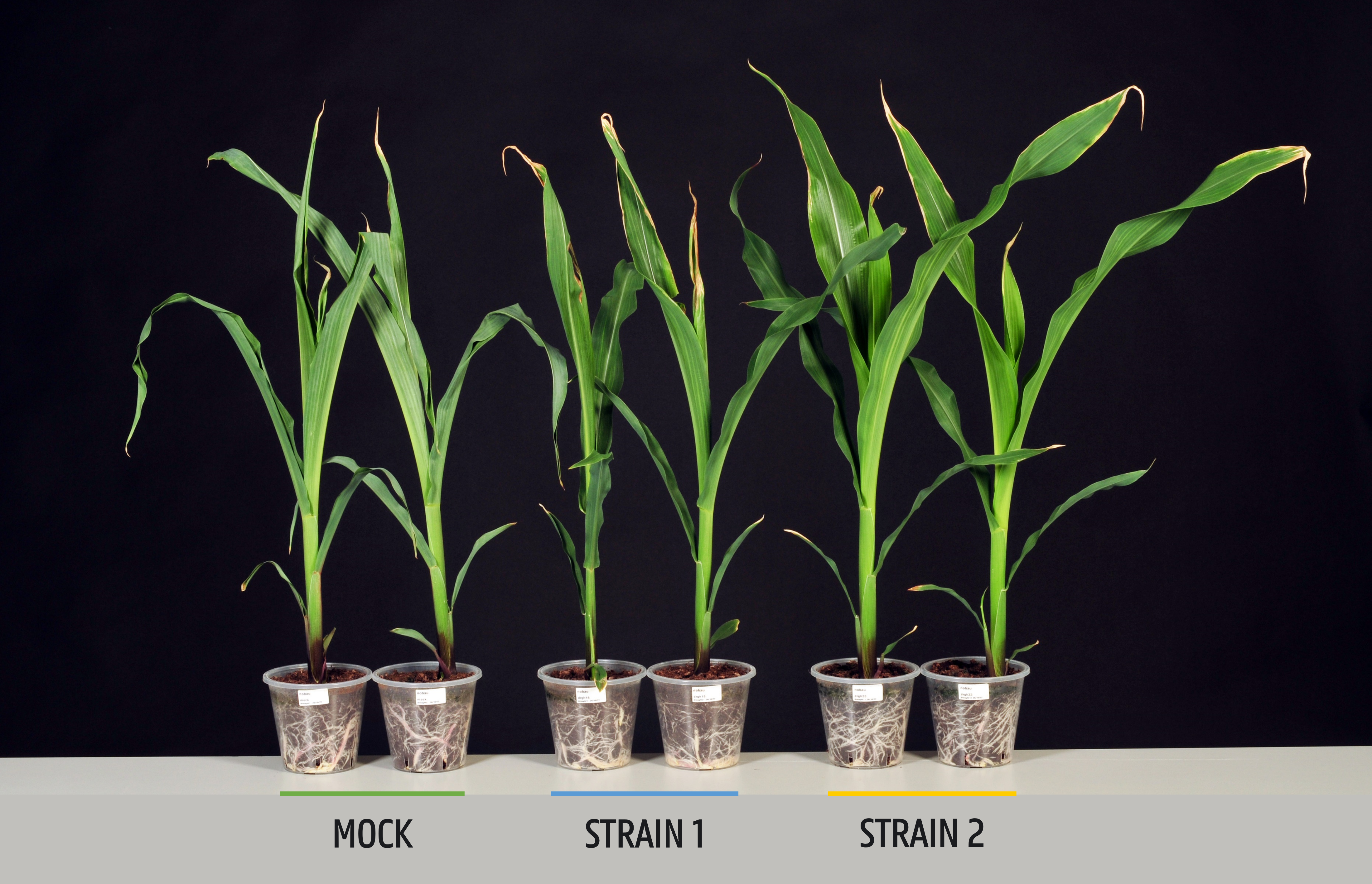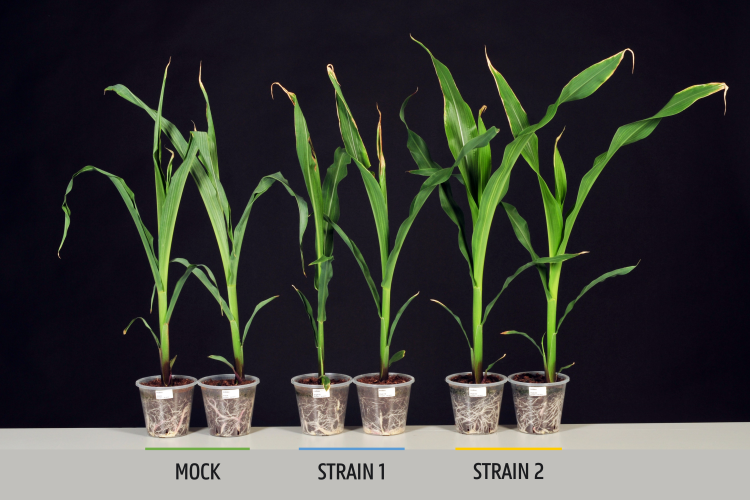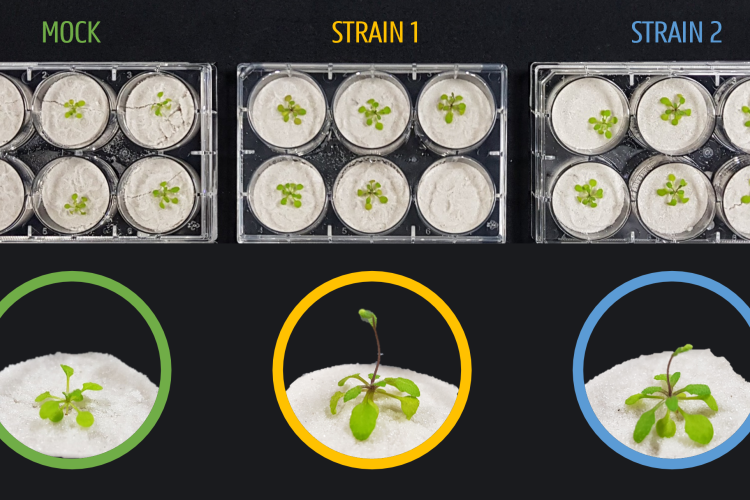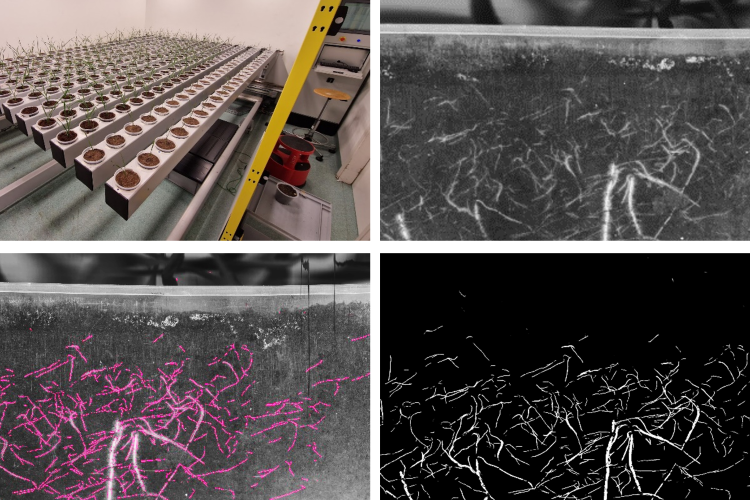Plant roots are colonized by vast amounts of microorganisms, of which many facilitate plant growth. The Goormachtig lab investigates the intricate interactions between plants and rhizosphere microbiota, with a primary emphasis on the phenotypic and molecular alterations induced by plant growth-promoting rhizobacteria (PGPR), particularly focusing on Streptomyces species and the staple crops maize and wheat.
Employing state-of-the-art transcriptomics, proteomics, phenotyping platforms and confocal microscopy, our mission is to identify potential new PGPR by tapping into the root microbiome, and to elucidate the molecular mechanisms underlying their beneficial effect on plant abiotic and biotic stresses. These are notably drought stress and fungal diseases such as Fusarium head blight and Septoria leaf blotch. By pinpointing key molecular markers or signaling hubs triggered by the biostimulant and biocontrol agents, we endeavor to enhance crop productivity and propel sustainable disease management strategies. This aim is further realized by partnering with industry leaders like Aphea.bio (https://www.aphea.bio/), who help us to accelerate the translation of our findings into practical applications and agricultural innovations.
Supported by the Daniel Van Damme lab (Advanced Live Cell Imaging) and funding from European and Flemish initiatives such as the Booster Project EU (https://boosterproject.eu/) and VLAIO (https://www.vlaio.be/nl), our research group remains dedicated to advancing scientific knowledge and fostering global food security.



